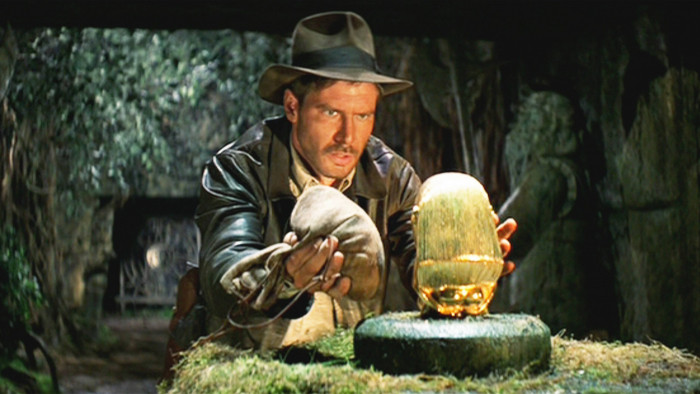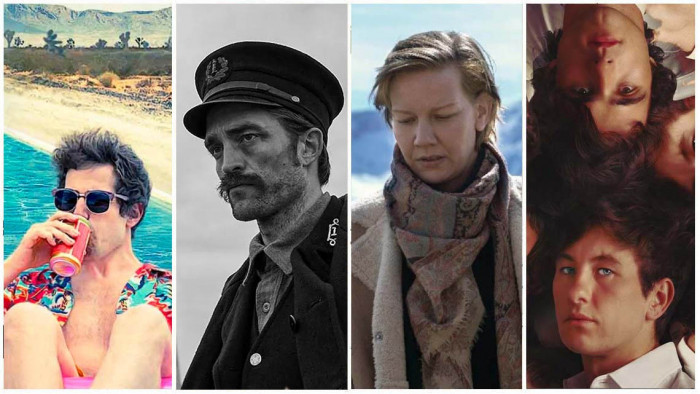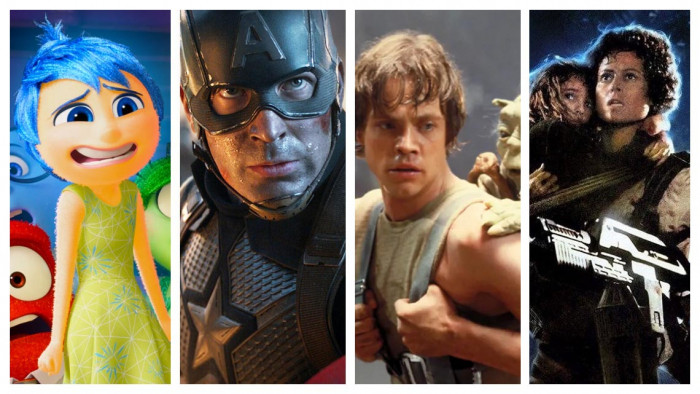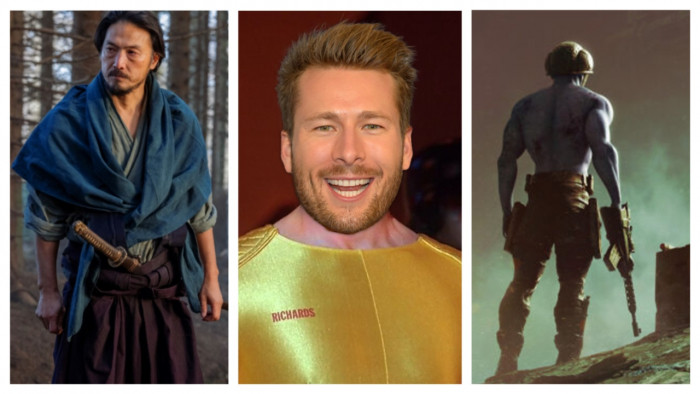As Gone Girl hits screens, ShortList’s Andrew Lowry talks to director David Fincher, and his collaborators, about 20 years of killer cinema
There aren't many directors who have turned in classics. David Fincher has a solid three to his name (Seven, Fight Club and The Social Network), and this week he drops Gone Girl, which could well join them. An adaptation of Gillian Flynn’s mega-bestseller, it delivers all the usual Fincher trademarks: technical mastery, an icy grip that won’t let you go and a twist that’ll knock you out of the chair.
It’s a style the 52-year-old former music video director has cultivated since he burst on to the scene, xenomorph-like, with 1992’s Alien 3. So how does one of Hollywood’s most daring visionaries keep that hit rate going? And what is it like to work with a director whose idea of a date movie is one featuring a beheaded Gwyneth Paltrow? We spoke to the man himself, and some of his key collaborators, to probe the inner workings of a dangerous cinematic mind.
Gone Girl is your second airport novel adaptation in a row – are you the bestseller guy now?
With every movie, it’s like, “Is this your last serial killer movie, or your last movie from a hit book?” I was sent the book and a lot of people said it wasn't my thing, but my wife read it and said there was some really interesting sh*t in there. So I read it, and I thought there was a lot of stuff going on, but there was this interesting through-line on the narcissism of who we cultivate as our mate. The narcissistic extension where we’re looking to find somebody who reflects well on us and makes us look good, and that facade you need to create in order to seduce the person you think would be ideal for you.
Already we’re on to the cynicism that many people often say they find in your films.
I think that’s just reality. Why are 50 per cent of marriages failing? That’s not me being cynical, that’s just math. I know what I’ve seen and I know what I’ve been involved with, and I know how tricky it can be. It’s not a sociological treatise, it’s a thriller, but it’s on that foundation of: ‘How do we know who we’re with at night? How do we know what they’re capable of?’
So you’re a glass filled to exactly halfway kind of guy…
I don’t look at it as just cynicism, it’s a complicated dynamic, and if we look at the idea of coupling as it has to be informed by our subconscious. People ask me all the time if I’m putting my stamp on it, and I say I couldn't not put my stamp on it – I’m directing the movie. I choose how people are going to behave, how could I not inform that? I don’t think of myself as a cynical person, I think I’m more curious than cynical. I’m curious as to how people reflect the time that they’re in. I couldn't have made Fight Club in 1991, and I wouldn't have made it in 2002.
After a time working in visual effects, you started out doing music videos. Are you nostalgic for the Eighties, now that MTV is a very different proposition?
It was a very interesting and productive time. I’m doing a TV show about this very period. It’s insane, I was 21 – I can’t imagine that a vertically integrated media conglomerate like Viacom would ever have a channel again that would allow a 21-year-old to basically do whatever the f*ck he wanted. You’d get the job on the Wednesday, budget by Monday, shooting by the next week and on the air in two-and-a-half weeks. You cobbled it together as best you could with all your manic insane friends, and that thing was then in every bar in the US. The numbers were crazy. Somebody sent me a newspaper clipping of the most expensive music videos of all time, and they had Express Yourself, which I did for Madonna, down for $5m, which is just total rubbish. If it had had that budget, I might have been paid. Nobody got wealthy from music videos. Apart from some record companies. And I think Madonna did OK.
A lot has been made of your meticulousness as a director. Do you rehearse with the actors before filming?
The process I prefer is to get the actor in the room with the writer, let the writer hear them. Aaron Sorkin can do Aaron Sorkin better than anybody except Jesse Eisenberg. It’s important to let Sorkin hear how the scenes are playing out, because then we see if something can be cut, or if he needs to say it three times instead of twice. It’s not a combative process, but the actors need to be a part of tearing at the fabric of the text, so when we come to shoot they feel like it’s over with.
Do a lot of things get changed from the script?
Once you've agreed what something is about, it seems like the easiest thing in the world. Then you start to shoot, and it isn't, and you get a million more variables coming into play. Rehearsal is about freeing yourself to get that right once you've worked out what the emotion is. People think you can alter an emotional beat by moving it. But if you can move a scene, change the order, chances are you didn't understand its purpose in the chronology. Actors see what a lot of screenwriters don’t. Rehearsal is about testing the fabric, seeing if there’s a better way of saying something. Actors help you on the day, and if they can test it out in shorts and T-shirt with their feet up, great. Like if they say, “Why do I need to say this at all?” and wait a minute – they’re right. They’re your best allies.
Is it fair to say you can be obsessive?
I want a movie experience to be what it was when I was growing up. When I first saw Close Encounters Of The Third Kind or All The President’s Men or All That Jazz, they were the movies that made an impression on me growing up. It didn’t feel like it was overly meticulous, but I look at those movies now and they were executed within an inch of their lives and I appreciate that. Would I like to go home every night at 5pm? Yeah, that’d be great. But when you’re making a movie, these are 12 and 14-hour days. Everybody does it, it’s not like I’m the only one.
You’ve tapped into the zeitgeist with your films more than once – do you seek out scripts with that kind of edge?
No, I think if you say to your agent, “Only show me the most zeitgeisty stuff,” you’re probably an asshole. I think there are certain things that come across your desk that you read and respond to. There was no doubt that Fight Club was a different kind of project to Panic Room – a movie that was designed to only be experienced once. Fight Club was profound and incendiary and absurd and funny and painful, it was always going to be a bigger meal. I didn’t look at it and go, “I’ve got to be involved in this because this is the zeitgeist,” it was more that I just get what this is. I've said this sh*t to myself, and this guy has had the balls to write it down. How did he know my frustration with what it means to be male at the end of the 20th century? By reading that book, you didn't feel alone or perverse, and whatever your sense of betrayal was culturally and sexually, you felt like somebody else was out there feeling the same thing.
It’s pretty provocative stuff for a studio film.
I don’t look to provoke people, but I’m interested in people who can provoke things in me. Part of the reason I wanted to do Seven was that I was talking to someone once at a party and they said to me they’d read this script and somebody else said, “Oh, it’s the head in the box movie.” It wasn't that I set out to make “the head in a box movie”, it was what people remembered about it. We used that argument years later with the studio when they wanted to cut it. We said it was the movie where people would say at the end the guy’s wife gets her head mailed to him in a box. I said, “Why do you want to take the head in the box out of ‘the head in the box movie’?” What do you remember about Alien or Jaws? The chestburster, or the kid getting killed with those giant fins rolling over. Fight Club has five or six of those things.
There’s that final shot, with the buildings collapsing, which you could never have gotten away with after 9/11.
The final shot was never meant to be prophetic, it was meant to be absurd. We wanted an image that was so absurd that when he said, “You met me at a very strange point in my life,” people would laugh. But I do think there are so many things about underground societies and terrorism that Chuck was able to describe in the funniest possible ways, that I was like, “How do I not get involved in this? This is a movie that people have to see."
People always say directing films is incredibly difficult – what drives you to keep going?
I spent my whole life trying to be in this position, so it’s not like I could do anything else. I joke about this but it’s true – I don’t have anything to fall back on. I don’t know how to do anything else. There’s a story from the first year of the production company we set up. We hired a producer to come in and work on a video that I was directing, and he was getting debriefed by the head of production. I was about 25 and I came in and gave the guy a good dressing down, as a lot of sh*t was being overlooked. I was like, “What the f*ck is this?” and walked out, and the producer looked at the head of production and said, “That is the rudest PA I have ever seen.” And he had to say, “No, he owns the company.” I guess I can be quite the charmer.
Gone Girl is at cinemas nationwide now
Latest
Related Reviews and Shortlists


The 10 best war movies of the 21st century









